Mild winter raises tick threat, says mountaineering body
- Published
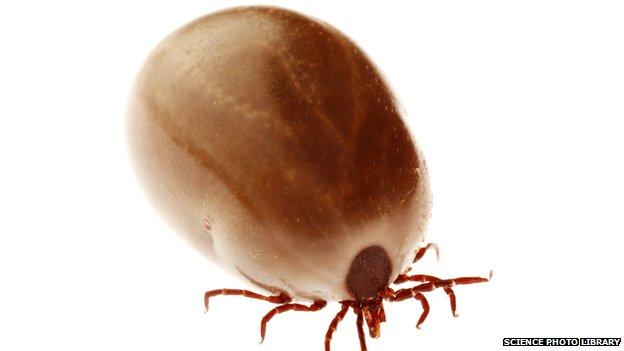
Ticks can transmit Lyme disease
A mild winter may have encouraged the spread of parasitic ticks, the Mountaineering Council of Scotland (MCofS) has warned.
It said hillwalkers were encountering large numbers of the pests during treks into Scotland's hills and mountains.
Lyme disease, an infection that can cause arthritis and even death if untreated, can be transmitted to humans through a tick bite.
The MCofS has issued advice on its website on how to deal with ticks., external
While Scotland's mountains had heavy snowfalls and freezing temperatures, weather conditions lower down were mild over the winter.
Heather Morning, MCofS mountain safety advisor, said ticks were usually common in vegetated areas of the Scottish hills.
However, she said she had seen unusually high numbers of ticks already this year.
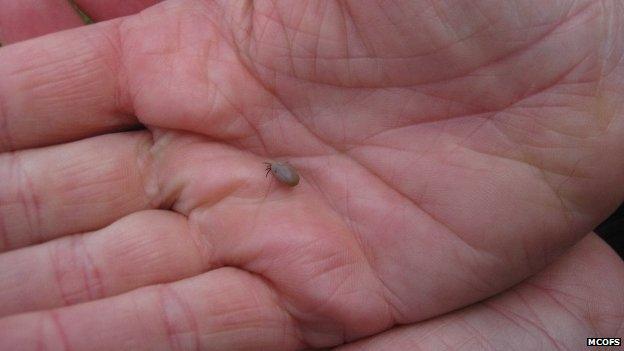
Hillwalkers have been encountering large numbers of ticks in the Scottish hills
Ms Morning said: "Last weekend we enjoyed a camping trip over in Moidart in the most stunning weather.
"Relaxing at the camp site after a day on the hill, we noticed several ticks on our feet and during the following week found several latched onto our bodies even though we had thoroughly checked ourselves when we got home.
"The dog didn't escape either. We have been removing engorged ticks from her for several days now."
- Published2 May 2014
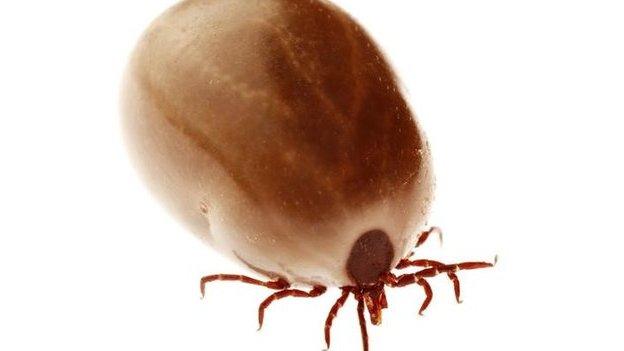
- Published9 July 2013
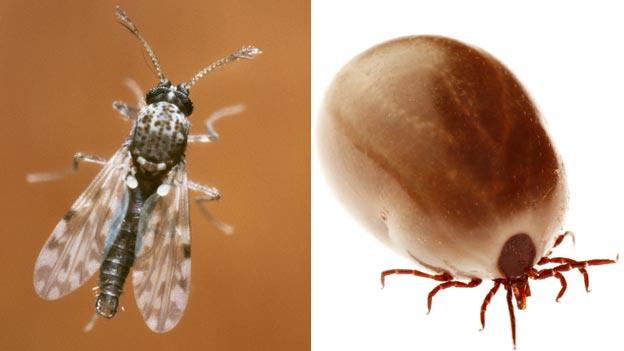
- Published12 May 2013
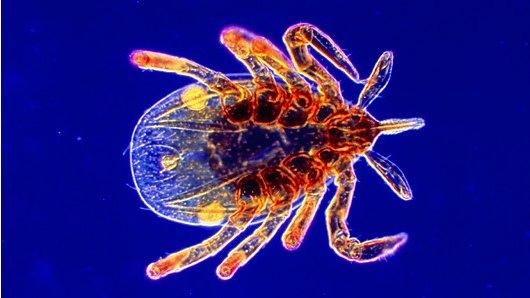
- Published21 March 2011